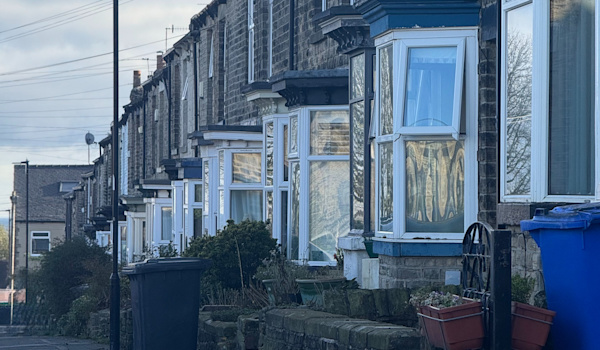
Round up of housing law and news: October 2025

Renters' Rights Act
The Renters' Rights Act received Royal Assent on 27 October 2025. Once in force, the Act will introduce major private rented sector reforms, including abolishing section 21 and assured shorthold tenancies.
The Act is expected to come into force in the first half of 2026.
Learn more about the Act
Find out what to expect from the Renters' Rights Act and how the Renters' Rights Bill will become law.
Read the full Renters’ Rights Act on gov.uk.
Legislation
Phase 1 of Awaab's law and electrical safety standards in the social housing sector.
Awaab's law
From 27 October 2025, social landlords have a legal duty to inspect and resolve emergency or significant damp and mould hazards within fixed timeframes. This is known as Awaab's law. The rules will be extended to cover additional hazards in 2026 and 2027.
The Hazards in Social Housing (Prescribed Requirements) (England) Regulations 2025
Electrical safety standards in social housing
From 1 November 2025, the government is extending minimum electrical safety standards to the social housing sector. Social landlords will have to carry out regular safety checks and make sure their properties meet the same standards already required in the private rented sector.
Case law
Missing gas safety certificate information, mandatory orders and out of borough notifications.
Gas safety certificate
The County Court ruled that a landlord served a valid section 21 notice, even though the original gas safety certificate omitted the landlord's details and did not comply with the regulations. Under gas safety regulations, the landlord only needs to retain the certificate for the last two checks. The decision means that for tenancies lasting more than two years, only the two most recent certificates are relevant.
The Renters' Rights Act is due to abolish section 21 notices in 2026.
Reported on Nearly Legal, 19 October 2025: Cassell & Cassell v Sidhu & Sidhu
Local authority ordered to house family near hospital
The High Court found that a local authority failed to meet its duty to provide suitable temporary accommodation.
The household included a child who relied on a ventilator at night and needed to live within 45 minutes of the hospital. The authority offered accommodation which did not meet the family's needs and gave generalised evidence of steps taken to accommodate. The court issued a mandatory order requiring the local authority to provide suitable temporary accommodation within one month.
Hammad (on the application of) v Royal Borough of Kensington & Chelsea [2025] EWHC 2425
Notification to end the main housing duty
A homeless applicant residing in temporary accommodation accepted a final offer and requested a suitability review. The authority held it was suitable and discharged the main housing duty. The authority later started possession proceedings for the temporary accommodation.
The applicant appealed the possession order, arguing that the main housing duty was still owed as he had not been informed of his right to request a review. The court held that the authority was not obliged under section 193 to inform the applicant of the right to a review. The requirements in section 184 did not apply in this case. The main housing duty ended.
Even if the authority had breached its duties, the court held the applicant should have challenged this through the review and appeal procedure under the Housing Act 1996 instead of appealing against the possession proceedings.
Wandsworth LBC v Young [2025] EWCA Civ 1336
Failure to notify of out-of-borough placements
A local authority placed a homeless applicant in out-of-borough accommodation but failed to notify the host authority within 14 days as required by section 208(4) of the Housing Act 1996.
The Court of Appeal found that although the authority had breached this duty, the delay did not affect the suitability of the accommodation. The court held that the notification requirement mainly concerns the allocation of responsibilities between authorities, not the applicant's housing rights.
Enfield LBC v A [2025] EWCA Civ 1355
Assessing whether a tenancy is a commercial arrangement
When a tenant claims housing benefit or universal credit housing costs, their liability to pay rent must be on a commercial basis.
The Upper Tribunal held that when considering whether the claimant's liability is commercial, the test is not simply to consider what a 'commercial landlord' would do. The benefit authority should consider all of the facts of the case.
News and guidance
Awaab's law, refugee move-on periods and government funding.
Awaab's law guidance
The government has published guidance to support the new legislation on hazards in social housing, known as Awaab's law. It sets out the landlord's duties to investigate and resolve hazards, including emergencies and damp and mould hazards, and specifies the timeframes for completing these actions.
Gov.uk: Awaab’s Law: Guidance for social landlords
Gov.uk: Awaab's Law: Guidance for tenants in social housing
Exemption to the 28-day rule for vulnerable refugees
The Home Office has confirmed that vulnerable refugees, including those who are pregnant, over 65 or have a disability under the Equality Act 2010, will continue to have a 56-day move-on period from asylum accommodation until December 2025.
The move-on period for refugees who aren't considered vulnerable has been reduced to 28 days.
Read the Home Office minister's answer on parliament.uk.
£84 million funding for rough sleeping
The government has announced an £84 million funding boost to prevent homelessness and support families this winter. This includes £70 million for the Rough Sleeping Prevention and Recovery Grant, £11 million to support families in temporary accommodation, £3 million for drug and alcohol treatment projects and £200,000 for faith and community initiatives.
Gov.uk: £84 million injection to tackle homelessness
Guidance on habitual residence rules for housing benefit
The DWP has issued a circular providing guidance to housing benefit authorities on new regulations which alter the habitual residence rules. These changes apply to any housing benefit decision made on or after 18 July 2025.
The new regulations apply where the UK government responds to an international crisis by advising UK nationals to leave or by carrying out evacuations.
Under the new regulations, claimants are exempt from habitual residence requirements if they:
do not require leave to enter the UK or have been granted leave with recourse to public funds
were habitually resident in a country immediately before the UK government advised British nationals to leave, or began evacuating people
left the country in connection with the official advice or evacuation
Support for care leavers
The House of Commons Library has published a research briefing outlining the UK government's policies supporting care leavers. It covers strategies and funding, social services, education and training, health and benefits. The briefing highlights local authorities' duties to homeless care leavers, rough sleeping strategies and financial support to secure accommodation.
House of Commons Library: Support for care leavers
Data and trends
Research into homelessness deaths, new homelessness statistics and rough sleeping data.
1,611 people died while homeless in 2024
Research by the Museum of Homelessness shows 1,611 people died while homeless in the UK in 2024, a 9% increase from the previous year.
The Dying Homeless Project report shows:
more than half of recorded deaths were linked to drugs, alcohol or suicide
the highest proportion of deaths was among people living in temporary accommodation
at least 8,523 people have died while homeless since reporting began in 2017
Museum of Homelessness: Dying Homeless Project report
Homelessness statistics in England
The government has published its quarterly statutory homelessness statistics.
The data shows that between April and June 2025 in England:
initial homelessness assessments dropped by over 6%
the number of households in temporary accommodation increased by over 7%
households with children in temporary accommodation are the highest since records began
nearly 60% of households had one or more additional support needs
Gov.uk: Statutory homelessness in England: April to June 2025
Rough sleeping data
The government has published its rough sleeping data in England between April to June 2025.
The data shows:
in June 2025, an estimated 8,732 people were rough sleeping
rough sleeping has increased by an estimated 13% from the last quarter
31% were new to rough sleeping
Updates from the Renters' Rights Act 2025
The monthly round up of legislation, cases, news and data from Housing Matters



